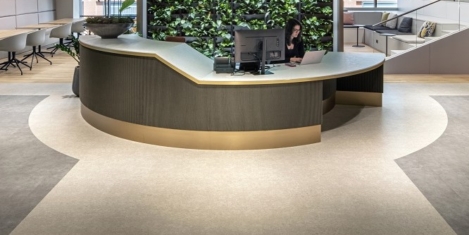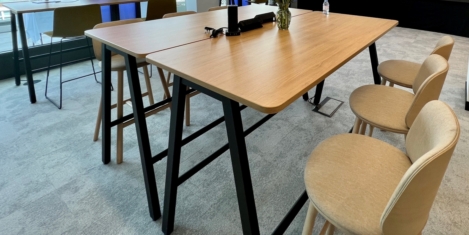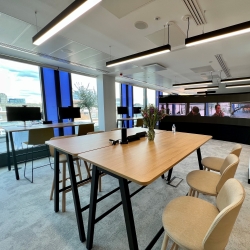November 28, 2023
Can smart glasses be the key to unlocking productivity in the workplace?
 Technology is the foremost resource for shaping the world—and in the modern workplace, it’s crucial for keeping brands competitive in an increasingly fast-paced business environment. Our article “Why new technologies still make employees happier, healthier, and more efficient” explains that technology must meet increasingly agile strategies like remote work. In these cases, it can help optimise manpower and productivity. As a result, 70 percent of firms believe new technologies improve business resilience. One of the emerging tools showing immense promise for improving productivity is smart glasses. (more…)
Technology is the foremost resource for shaping the world—and in the modern workplace, it’s crucial for keeping brands competitive in an increasingly fast-paced business environment. Our article “Why new technologies still make employees happier, healthier, and more efficient” explains that technology must meet increasingly agile strategies like remote work. In these cases, it can help optimise manpower and productivity. As a result, 70 percent of firms believe new technologies improve business resilience. One of the emerging tools showing immense promise for improving productivity is smart glasses. (more…)









 For many people, a large portion of the day is spent at the workplace. In fact, the average person will spend 90,000 hours at work over a lifetime. The Covid-19 pandemic saw the typical ‘workplace’ setting change for many people, after businesses around the globe were forced to adjust to a ‘work-from-home’ model. Now, three years later, we are starting to see more employees return to the office, with large corporations including JPMorgan, Chase, Apple and Google all announcing plans to bring their workers back to base.
For many people, a large portion of the day is spent at the workplace. In fact, the average person will spend 90,000 hours at work over a lifetime. The Covid-19 pandemic saw the typical ‘workplace’ setting change for many people, after businesses around the globe were forced to adjust to a ‘work-from-home’ model. Now, three years later, we are starting to see more employees return to the office, with large corporations including JPMorgan, Chase, Apple and Google all announcing plans to bring their workers back to base. 


 This was originally published in December 2020. All happy families are alike; each unhappy family is unhappy in its own way. As is now the way of these things, the famous opening words of Anna Karenina have been used to name a principle that is applied across a wide range of fields. It describes how success can only happen in one way, but failure comes in many forms.
This was originally published in December 2020. All happy families are alike; each unhappy family is unhappy in its own way. As is now the way of these things, the famous opening words of Anna Karenina have been used to name a principle that is applied across a wide range of fields. It describes how success can only happen in one way, but failure comes in many forms. 








 Zoom has opened a new London ‘Engagement Hub’ which the firm claims will spearhead the shift from traditional office spaces to ‘experiential working hubs’. With the demand for hybrid working and remote capabilities giving rise to unconventional ways of operating, Zoom says it has designed its new office to support the changing nature of the employee experience, marking a new era of modern work.
Zoom has opened a new London ‘Engagement Hub’ which the firm claims will spearhead the shift from traditional office spaces to ‘experiential working hubs’. With the demand for hybrid working and remote capabilities giving rise to unconventional ways of operating, Zoom says it has designed its new office to support the changing nature of the employee experience, marking a new era of modern work. 










November 14, 2023
Republished: The brain-dead megaphone of work
by Mark Eltringham • Comment, Working lives